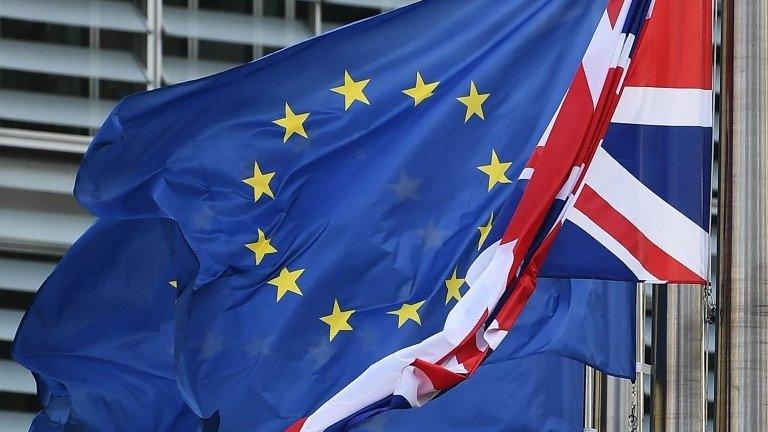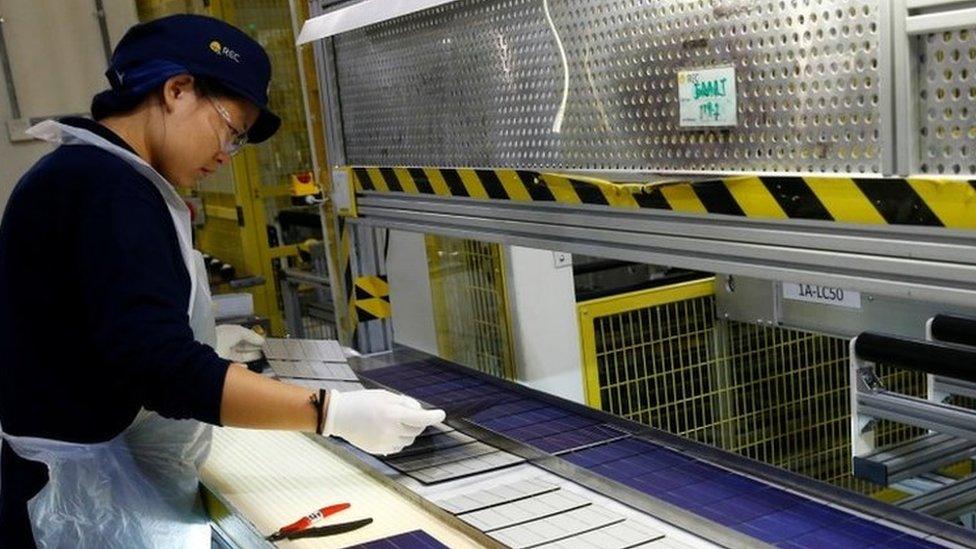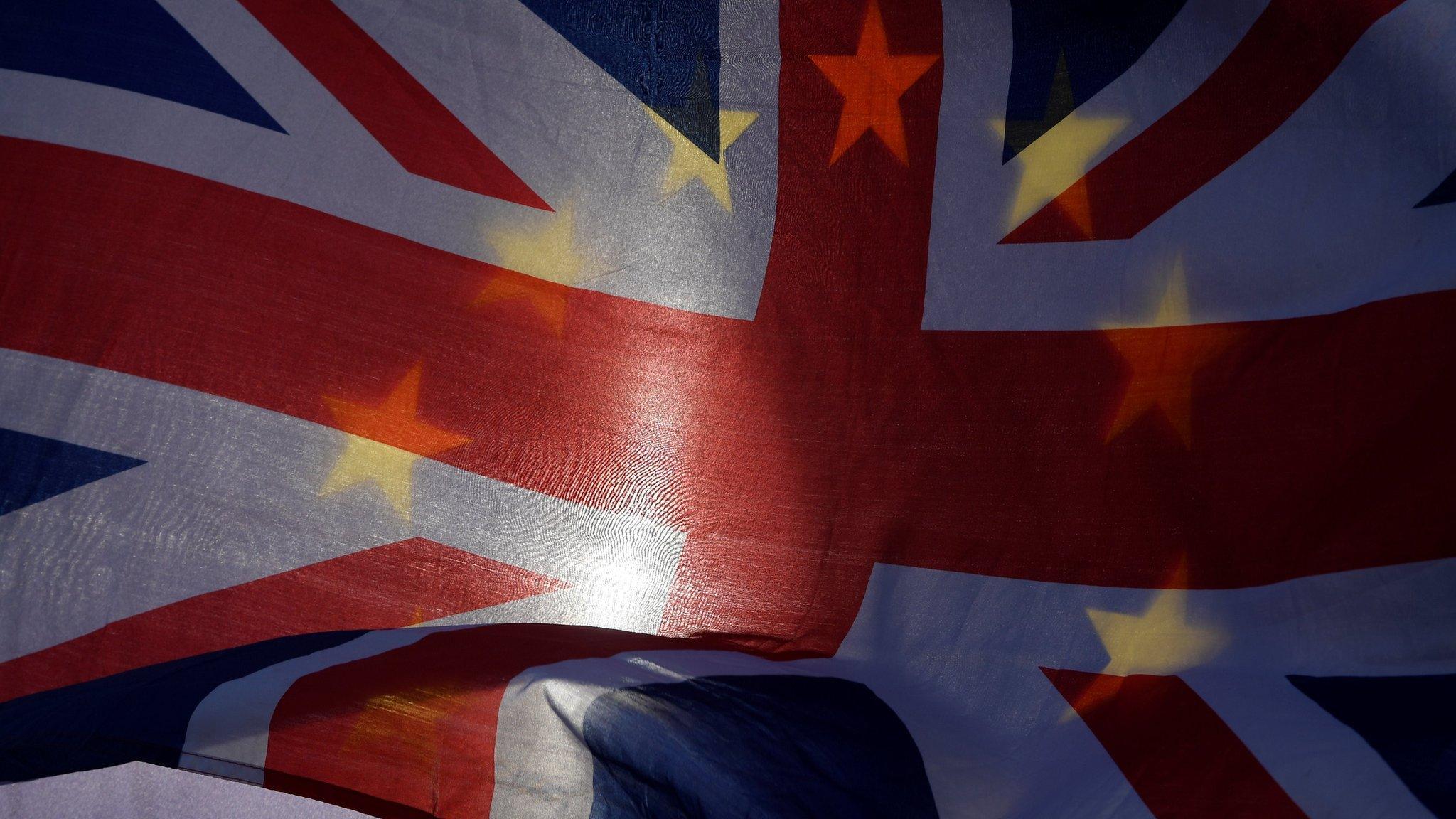How to make sense of those pesky Brexit forecasts
- Published
- comments

The Bank of England, the Organisation for Economic Co-operation and Development, the International Monetary Fund, the London School of Economics, the US government funded Rand Corporation and the National Institute of Economic and Social Research.
Each of these august organisations has investigated the possible economic impact of the decision to leave the European Union and has come to the conclusion that the impact will be - and in part already is - negative.
The UK economy would be likely to perform better over the next 15 years if the decision on Brexit had not been taken, the economic modelling suggests.
No scenario - a relationship with the EU based on World Trade Organisation rules, a comprehensive free trade agreement or continued, associate, membership of the single market - would be better for the economy than the status quo.
Leaked Brexit paper suggests economic hit
The government's analysis, leaked this morning, suggests similar.
And it is in fact pretty close to the Treasury analysis of the possible economic impact of Britain leaving the European Union which was published before the referendum in April 2016.
Forecasts should not be used as a prediction of a precise end point.
No one should suggest - politician or otherwise - that any model reveals what will definitely happen.
Governments and central banks can change policies, for example, to try and prevent forecasted outcomes.

And Brexit is not the only factor governing our economic future.
Rather, they are the central finding of a range of scenarios allowing a sensible judgement to be made about a future direction of travel.
Imagine you had two dice, and you threw them onto a table.
A sensible forecast about the most likely range of numbers the two dice would add up to would be 6, 7 or 8.
Those are the numbers with the highest probability of appearing - throwing a 7 (which could come via 6+1; 1+6; 5+2; 2+5; 3+4; 4+3) is much more likely than throwing a 12 (6+6).
If you then throw an 11 (5+6 or 6+5), the forecast would still be reasonable - even though one of the outlying scenarios had come to pass.
But it is also true that we haven't been throwing a series of predictable sevens.
As ever with strong forecasts, many of the central scenarios have come to pass.
And some haven't.
The forecast for the UK economy following the Brexit vote suggested that growth would slow, the value of sterling would fall and inflation (prices) would rise, leading to a fresh incomes squeeze.
Those forecasts have been borne out by events.
The rest of Europe has been growing more strongly than the UK.
Of course, not all that is down to Brexit.
But it is reasonable to assume some of it is, given that the UK was top of the growth charts two years ago and the referendum is the one, substantive change.
And, as Mark Carney, the Governor of the Bank of England, said in his interview on the Today programme last week that means tens of billions of pounds of economic activity isn't happening that could have been expected to be happening if Britain had decided not to leave the EU.
Other parts of the forecasts have not come to pass.
Unemployment has not soared.
Consumer confidence has not collapsed.
And there has been little sign of a recession.

Why? Because forecasts are not built to include all the "dynamic effects" of changing circumstances.
After the referendum, the Bank of England cut interest rates and increased its levels of asset purchases (quantitative easing).
This monetary stimulus acted as a shock absorber.
The fall in the value of sterling was also an economic stimulus, making our exports more competitive.
And the government also loosened the public spending purse strings in the Autumn Statement that followed the referendum, providing a fiscal boost.
The fact is, economic forecasts are negative because of the trade impact of leaving a single market and customs union with our biggest trading partner.
Better than expected
But, other effects can mitigate those downside risks - such as, over time, signing trade deals with other countries.
The UK economy has performed better than some predicted.
Better global growth has helped, alongside that monetary and fiscal stimulus.
And, of course, we haven't left the EU yet.
Forecasts are just that - a range of the likely scenarios given the wide range of data and statistical analysis now possible about economic relations around the world and their effects on economic performance.
But they are not set in stone.
And that is where politicians come in: they can change the forecasting weather.
- Published30 January 2018

- Published30 January 2018